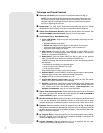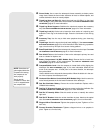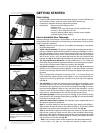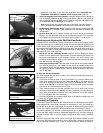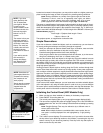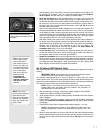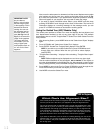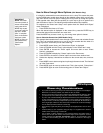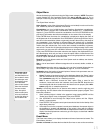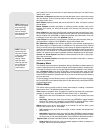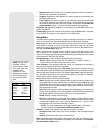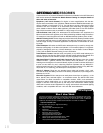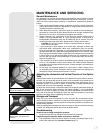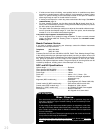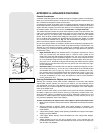
How to Move through Menu Options (NGC Models Only):
It is helpful to understand that menu selections are set in a loop
.
This means that press-
ing the DOWN button scrolls down through all the available options within a given cate-
gory, then returns to the first option. Pressing the UP key scroll up through the options
in the opposite order. Note that this capability is a quick way to get to an option that is
near the bottom of the list. The following example demonstrates this capability.
To navigate to the "Select Item: Setup" menu option when the "Select Item: Object"
menu is displayed:
1. Press DOWN five times or UP once.
When the desired option is displayed on the second line, press the ENTER key to
choose that option and move down one menu level.
Press the MODE key to leave a level;
e.g
., the wrong menu option is chosen.
How to Calculate Sunset time (NGC Models Only):
This example demonstrates how to move through a typical menu and calculate Sunset
time. This is an excellent exercise to try out as you can calculate the time when it is
going to get dark—and when you can start observing.
1. Press MODE several times, until "Select Item: Object" is displayed.
2. Press UP/DOWN until the "Event" option displays in the "Select Item" menu.
3. Press ENTER to choose the "Event" option and move down a level. "Event:
Sunrise" is displayed.
4. Press UP/DOWN to display the "Sunset" option in the Event menu.
5. Press ENTER to choose the "Sunset" option and move down another level.
6. Sunset time displays; calculations are based on the current date, time, and loca-
tion.
7. Press MODE once to start moving back up through the menu levels. The first level
up is the Event menu.
8. Press MODE again to move up another level. This is the top level, "Select Item."
9. Press MODE again to return to the starting point of "Select Item: Object."
14
Observing Considerations
• Try to pick an observing site away from street and house lights and car headlights.
While this is not always possible, the darker the site, the better.
• Give your eyes about ten minutes to adjust to the darkness before observing. Give
your eyes a rest from observing every ten or fifteen minutes to relieve eyestrain.
• Try not to use a standard flashlight. Experienced observers use red LED flashlights
or tape red cellophane over their flashlights to use for setup and map reading so
they don’t have to continually readjust their eyes to the darkness. Be careful not to
shine bright lights if there are other observers in the area. Do not shine a flashlight
into the telescope while someone is observing!
• Dress warmly. It gets chilly when you’re sitting for prolonged periods, even on warm
nights.
• Practice setting up your equipment during the day or in a lighted area to become
familiar with it before going to a dark site.
• Use a 25mm or 26mm eyepiece to view terrestrial objects and wider areas of
space, such as open star clusters. Use optional higher power eyepieces, such as
a 9mm eyepiece (see OPTIONAL ACCESSORIES, page 19, for more details), when
you wish to view something up close, such as craters on the Moon or the rings of
Saturn.
TIPS for Beginners
IMPORTANT
NOTE: No matter
how many levels of
menus are traveled,
each press of the
MODE key moves
up a level, until the
top level, "Select
Item," is reached.
Once in the Select
Item level, press
MODE to return to
the topmost level,
"Select Item:
Object."



